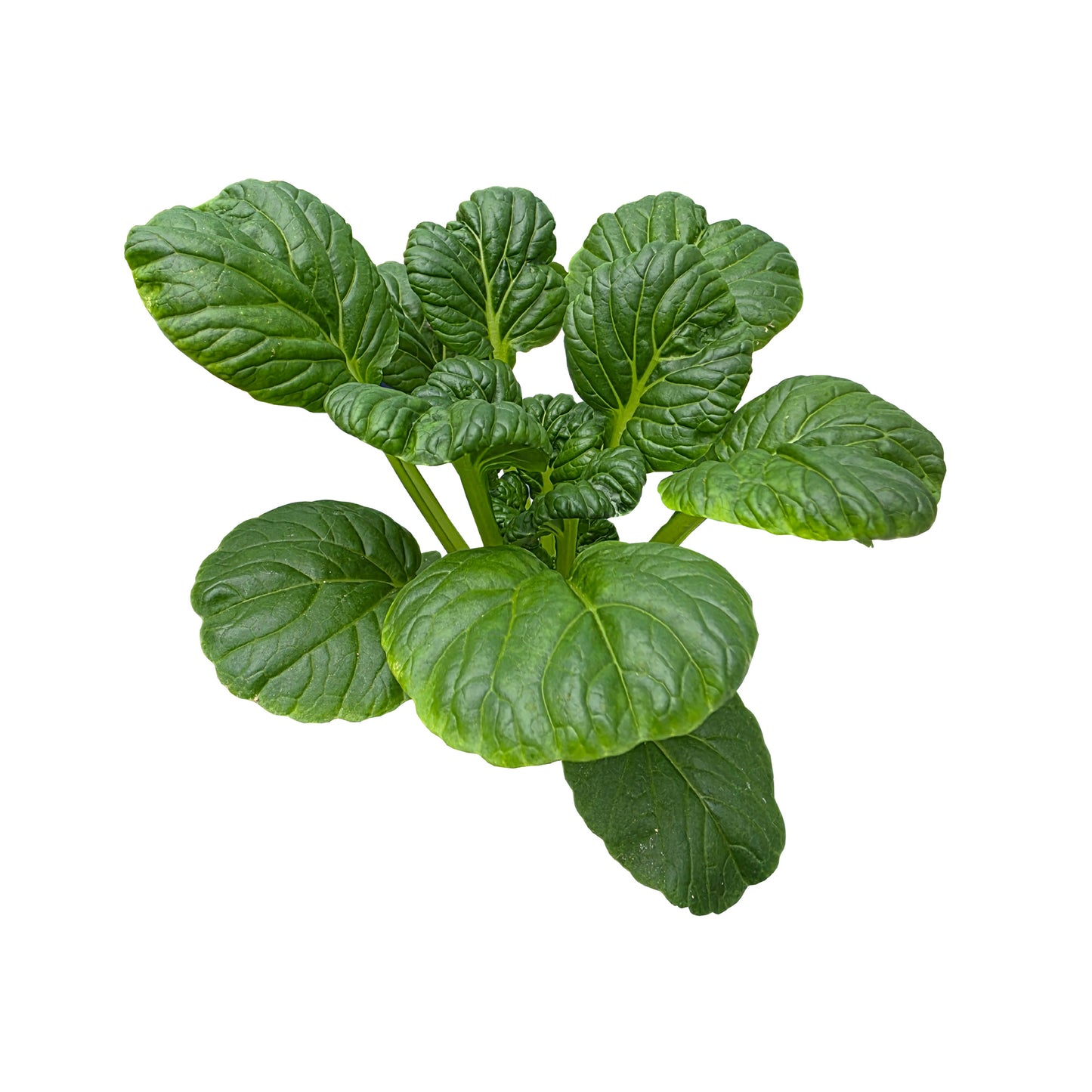JONQUIL
Tatsoi Mustard - 1 Gram
Tatsoi Mustard - 1 Gram
Couldn't load pickup availability
Tatsoi, also known as Spinach Mustard or Rosette Pak Choi, is a fast-growing, cold-hardy Asian green known for its beautiful, spoon-shaped, glossy dark green leaves that form a low, dense rosette. Its mild, mustardy flavour and crisp, juicy texture make it excellent for salads, stir-fries, and soups.
Plant type Cool-season annual (sometimes overwintered)
Height 10–20 cm tall
Spread 25–30 cm across (rosette-shaped)
Leaves Smooth, dark green, slightly puckered, spoon-like with prominent white veins
Texture Crisp, juicy stems and soft leaves
Flavour Mild, nutty, mustard-like taste with a slight sweetness—less pungent than other mustards
Growth habit Compact, ground-hugging rosette
Maturity Baby leaves in 20–25 days; full rosettes in 45–50 days
Cold tolerance Excellent—can survive frosts and even snow
Tatsoi is great as a cut-and-come-again green, harvested young or mature. It thrives in containers, raised beds, or traditional garden beds, making it a versatile option for all growers.
Growing Conditions
Light Full sun to partial shade (especially in warmer months)
Soil Moist, rich, well-draining soil with high organic matter
pH Neutral to slightly acidic (6.0–7.0)
Watering Keep soil evenly moist—avoid letting it dry out
Feeding Enrich soil with compost or apply a balanced organic fertilizer; avoid excess nitrogen to prevent overly lush, pest-prone growth
Sowing Instructions
Direct Sowing (recommended)
When to sow
Spring crop 2–4 weeks before last frost
Autumn crop Late summer (6–8 weeks before first frost)
Seed depth 0.5–1 cm
Spacing
Thin to 15–20 cm between plants
Rows 25–30 cm apart
Starting Indoors (optional)
When 4–6 weeks before last frost
Transplant When seedlings have 2–3 true leaves and are 7–10 cm tall
Hardening off 5–7 days before transplanting
Germination details
Temperature 10–24°C
Germination time 5–10 days
Temperature & Seasonality
Thrives in cool temperatures 10–20°C
Can bolt (go to seed) quickly in heat, so best grown in spring or autumn
Can overwinter under protection in cold climates
Common Pests & Problems
Pests
Flea beetles Tiny holes in leaves – use row covers or neem oil spray
Aphids Gather in leaf curls and stems – wash off with water or treat with insecticidal soap
Slugs and snails Chew large holes – use traps, copper tape, or night hand-picking
Cabbage loopers / moth caterpillars Eat leaves – handpick or use Bt spray
Root maggots (in very moist soils) May attack young roots – rotate crops, use row covers, and avoid overwatering
Diseases
Downy mildew Yellow patches and fuzzy undersides – improve air circulation and avoid wetting leaves
Powdery mildew White dusting on leaves – prevent overcrowding and use sulphur spray if needed
Damping-off (in seedlings) Caused by excess moisture – ensure good drainage and air flow
Clubroot Swollen, distorted roots – rotate crops, lime soil, and avoid infected beds
Harvesting Tips
Baby leaves Ready in ~3 weeks – great for salads
Full rosette Harvest entire plant at 45–50 days or harvest outer leaves for ongoing production
Cut-and-come-again Regular leaf picking encourages more growth
Storage Keep harvested leaves in the fridge for up to a week in a sealed container
Share


